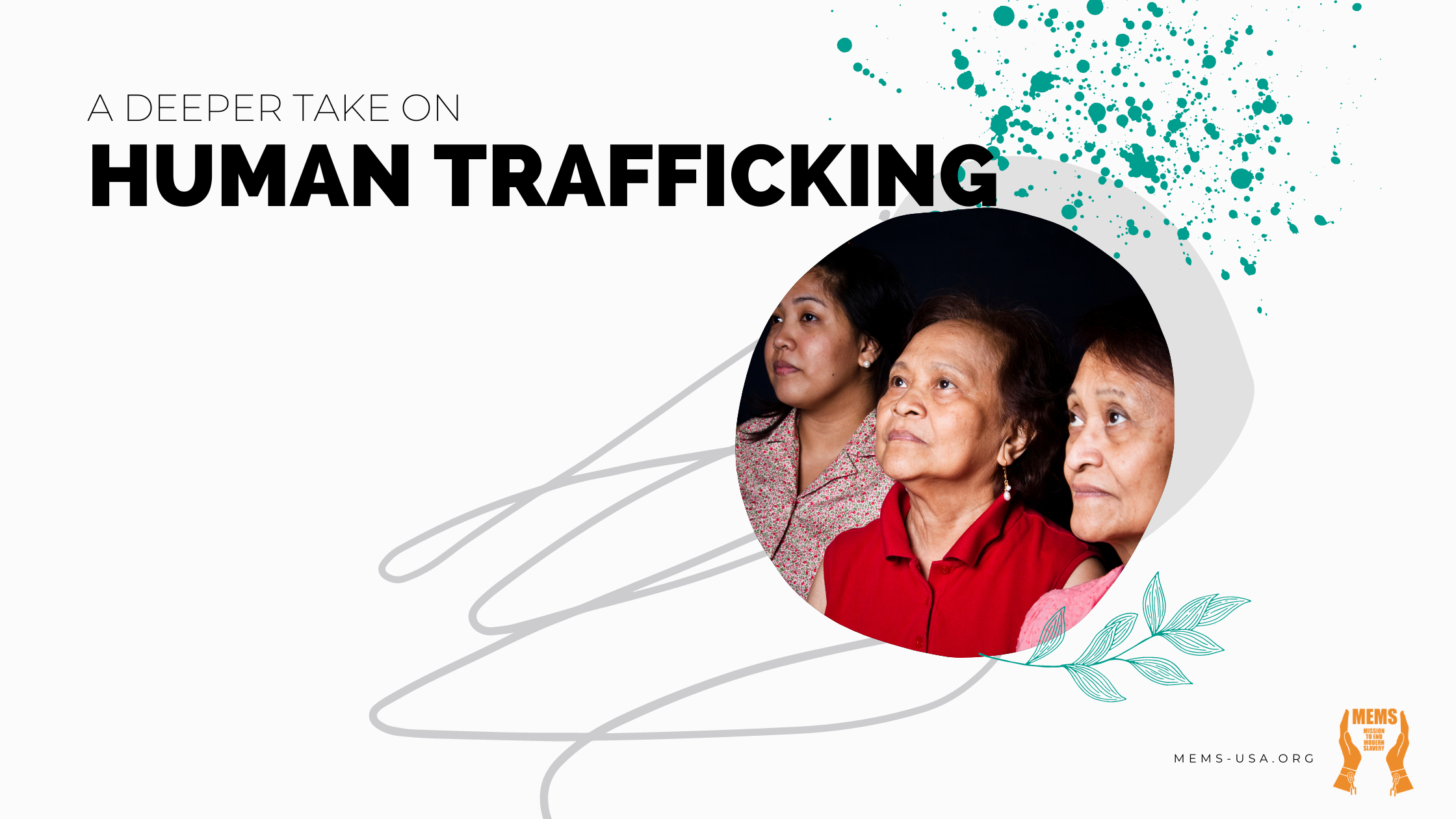A Deeper Take on Labor Trafficking
Often, when we read or hear the word “human trafficking,” our minds immediately jump to sex trafficking. But the reality is this modern form of slavery takes shape in ways that on the surface, may seem less insidious. Dramatized images and stories of human trafficking are damaging to actual survivors. Trafficking has been so institutionalized in various immigration, labor, and foreign agencies and policies that former historical trends are no longer necessary.
Take labor trafficking for example. In Jia Tolentino's blog post, she talked about her parents’ work to set up an agency that gave Filipinos jobs as nurses and teachers in the United States. Though upon first glance, this work may seem positive, an opportunity for immigrants to gain employment, but as she highlights, “any business involving immigration is inherently unethical." These labor agencies, especially Filipino owned ones, are the modern manifestation of institutionalized trafficking. Her parents stole almost 2.75 million USD and indicted on 40 counts of money laundering, conspiracy to smuggle immigrants, and visa frauds. They charged each Filipino teacher $10,000 for a visa, but less than 100 of the 273 teachers brought to the USA had jobs.
Jia's parents are simply one example of the common and modern trend of trafficking, particularly the labor trafficking of Filipino migrants. Jia is the example of the culture normalizing and excusing trafficking because it is does not match history's depiction. She uses her parents' identities as Filipino immigrants themselves as an excuse, disregarding their power and influence through class. In many cases like this, the migrant workers themselves still faces criminal, immigration, and financial consequences despite beings victim of trafficking.
MEMS' mission is to combat these misconceptions about trafficking with services, stories, and community power for and by migrants and trafficking survivors. Education around trafficking is imperative not just to sharpen legal professionals in identifying trafficking cases in their clients but to also bolden community awareness on the modern day struggles of migrants.

